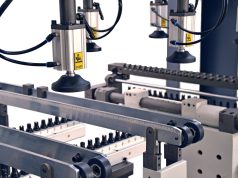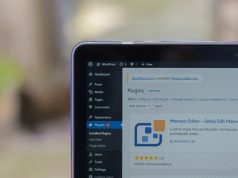Digitalisation has transformed every sector in recent years. The implementation of technologies like artificial intelligence and automation have streamlined processes, improved data accuracy, and allowed businesses in every industry to become more efficient.
One sector that has been slow in its adoption of technology is logistics and haulage. In a pre-pandemic PwC survey, only 28% of transport and logistics providers rated themselves as digitally advanced.
However, digitisation is picking up in the sector. In its whitepaper, Using Digital to Drive Your Transport Business Forward, Mandata found that digital adoption is a priority for two-thirds of hauliers in 2021.
Here, we discuss how digital technologies are transforming the logistics sector in 2021 and beyond.
Back-office digitisation increases productivity
When we think of innovative technologies, we might focus on virtual assistants and robotics, but sometimes the best digital solutions are the less glamorous ones. For many years, hauliers and logistics firms relied on manual or paper-based processes to manage planning, jobs, and invoices.
Gone are the days of using spreadsheets, or even easily misplaced sheets of paper, to carry out your operations. Now, transport management software allows you to manage your processes, from order right through to invoice, in one fully integrated system. Not only does this allow you to be more time-efficient, because it eliminates duplicate data entry, but it also offers real-time visibility on reporting or job status updates for key stakeholders like customers and colleagues.
Route planning software makes journeys more efficient
In days gone by, your drivers’ deliveries could be impacted by a poor route choice or unexpected traffic. One late delivery can have a knock-on effect on the rest of the day’s deliveries, which can impact profit made on each job, your customer satisfaction, and potentially your customer retention rate.
Route inefficiencies can also cost your business a lot of money – and in a sector with already razor-thin margins, this is the last thing you need. Intelligent route planning software, however, will automatically calculate your costs per vehicle or mile and give you the most fuel-efficient options.
With real-time status updates and ETAs available, your transport planners will be able to see if there’s anything holding up your drivers and, if necessary, divert them. A live arrivals board will allow you to easily spot any journeys encountering issues and view delivery countdowns.
Mobile apps for drivers improve accuracy
Drivers are also benefitting from the technological innovations driving change in the sector. In recent times, many planners would send their drivers a list of jobs via WhatsApp, SMS or even phone calls, which was difficult to track and follow. Prior to that, many relied on paper sheets handed to them at the start of the workday. Paper proof of deliveries also presented a lot of issues for drivers.[SR1]
Mobile apps for drivers are making their day-to-day tasks easier[SR2] , allowing them to carry out essential parts of their work in one place and paper-free. They can access their jobs for the day within the app and update them when they’re complete.
One of the most powerful tools for hauliers in these apps is electronic proof of delivery (ePOD). Paper-based PODs were the standard until recent years, but they were prone to being misplaced, lost, or even illegible. Electronic PODs allow drivers to easily capture confirmation of their delivery, whether that’s via a photo or a digital signature. The ePOD will automatically match back to the correct job and when the jobs are ready to be invoiced, the ePODs will automatically be attached. This results in less duplication of work while also providing the ability to complete invoicing in a few clicks, cutting down on hours of manual work.
Many sectors have reaped the benefits of digital innovation, but until recently, haulage and logistics companies have been left behind. We know the industry struggled with the impact of COVID-19, with 73% of hauliers reporting that their cash flow significantly reduced in the first UK lockdown. However, we’ve also seen priorities change as a result of these extraordinary circumstances, as many hauliers are choosing to focus on digital adoption this year.
[SR1]I’m not keen on the tone of this – could we change this to “And not to mention paper proof of delivery.”
[SR2]This goes back to the conversation we’ve had on ‘what does this mean’ and trying to stay away from high level jargon/corporate talk. Could we have a switch up here, try something like “Mobile apps are helping drivers make their day-to-day tasks easier and less hassle” or something like this?













